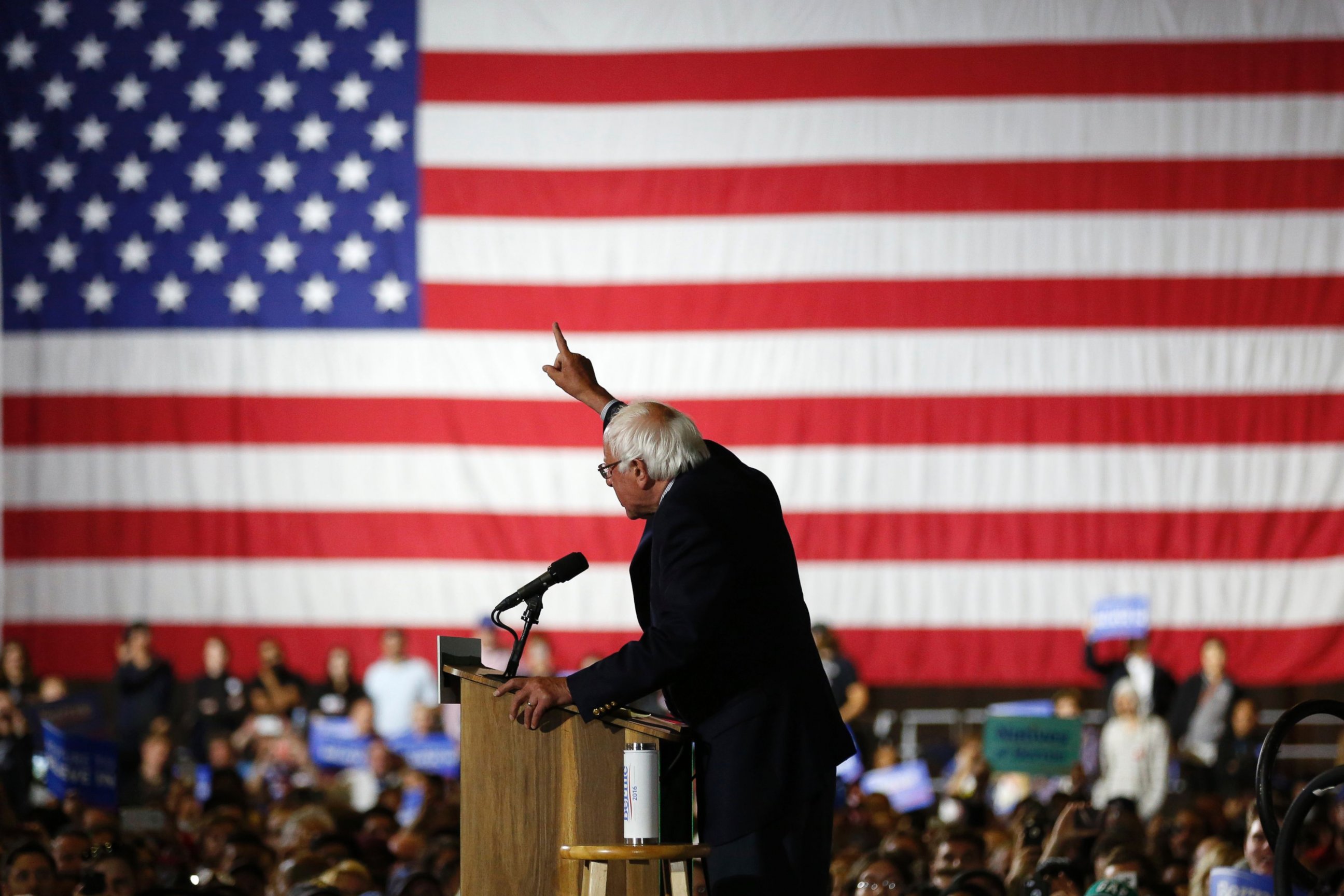What Hillary Clinton Can Learn From Bernie Sanders' Campaign
Experts weigh in.
— -- Now that Hillary Clinton is the presumptive Democratic presidential nominee, she has two main tasks in front of her: uniting a divided Democratic Party and then using that to fight Donald Trump in the general election.
Step one may take some work, however. Exit polls from last month in West Virginia indicated that one-third of Democrats who voted in the state's primary said they would rather vote for Trump than for the Democratic nominee, whoever that turned out to be.
Clinton has no scheduled campaign events today, but there are plenty of ways that experts and political operatives say she can work to win over Sen. Bernie Sanders' supporters.
Adam Green, a co-founder of the Progressive Change Campaign Committee, told ABC News that paying attention to some of the issues Sanders campaigned on would be a key way to show she's listening.
"Hillary Clinton could make big moves toward uniting the party and sowing the seeds for victory in November by keeping the volume high on progressive ideas she campaigned on — and promising to put them in the platform," Green said, citing an expansion of Social Security benefits, debt-free college and restoring voting rights as examples.
A stylistic element could also come into play, according to ABC News political analyst Matthew Dowd, who said it "would be wise" for her to shake up her campaign structure a bit.
"She should reduce her entourage, do more unscripted events and conversations and be more transparent with the press and voters," he said.
Clinton's limited use of press conferences is one example; she has held just nine events with her traveling press corps since January. Her last formal press conference was in Iowa on Dec. 4.

By comparison, Trump held two press conferences in the last seven days.
Dowd said that Sanders' campaign and campaign style attracted many younger voters.
"Those voters were attracted to Sanders because of his authenticity and genuine way he campaigned and behaved and talked," Dowd said.
"Her biggest worry isn't that those young voters will vote for Trump but that they won't be engaged and will stay home. And that is a big problem for a Democrat to win nationally," Dowd said.
Exit poll analysis from the Wisconsin primary showed Sanders winning white voters under the age of 45 by a huge margin.
James Campbell, a political science professor at the University at Buffalo in New York who has written the upcoming book "Polarized: Making Sense of a Divided America," said that both Republican voters and Sanders supporters have made it clear that there is "a tremendous amount of anger" about the state of the economy in the wake of the recession.
As a result, Campbell said, "[Clinton] cannot afford to run as the continuity candidate."
"She must steer a course between somehow convincing voters that she is candidate of change and that she is also respectful of the record of President Obama," Campbell said.
He also said that wooing Sanders voters would be more worthwhile for the former secretary of state than going after moderate Republicans.
"I think her time is better spent winning over Sanders voters, particularly young women, than trying to win over wavering moderate Republican Trump supporters," Campbell said. "I think that group is likely to be a very hard sell for Clinton. They are probably more likely to abstainthan vote for Clinton."
Even before the unity work on the Democratic side begins, he said, Clinton already has something working for her.
"She has one huge asset in pulling this off: Trump will divert attention away from economic issues. He should make her job much easier," Campbell said.
ABC News' MaryAlice Parks contributed to this story.




